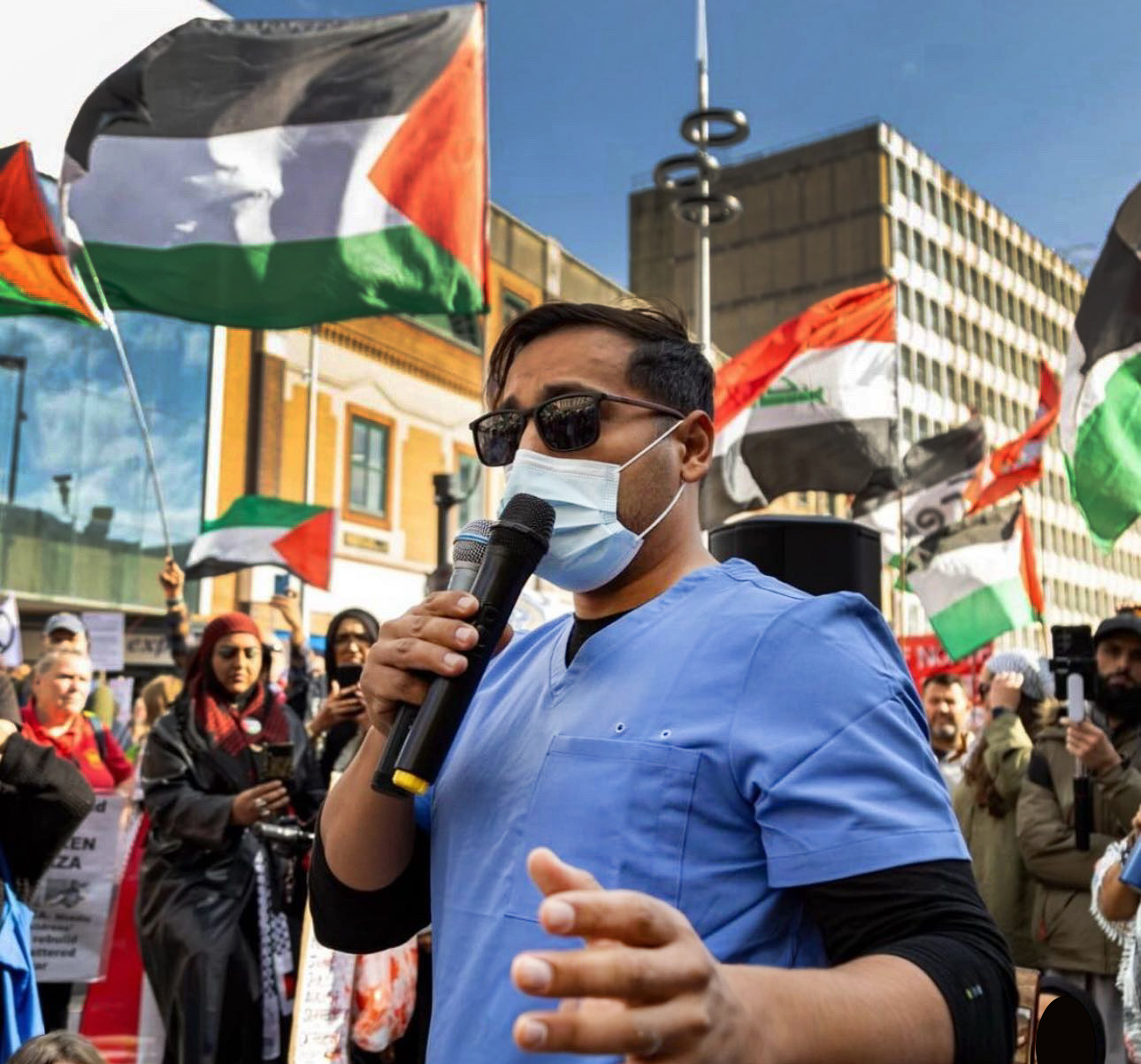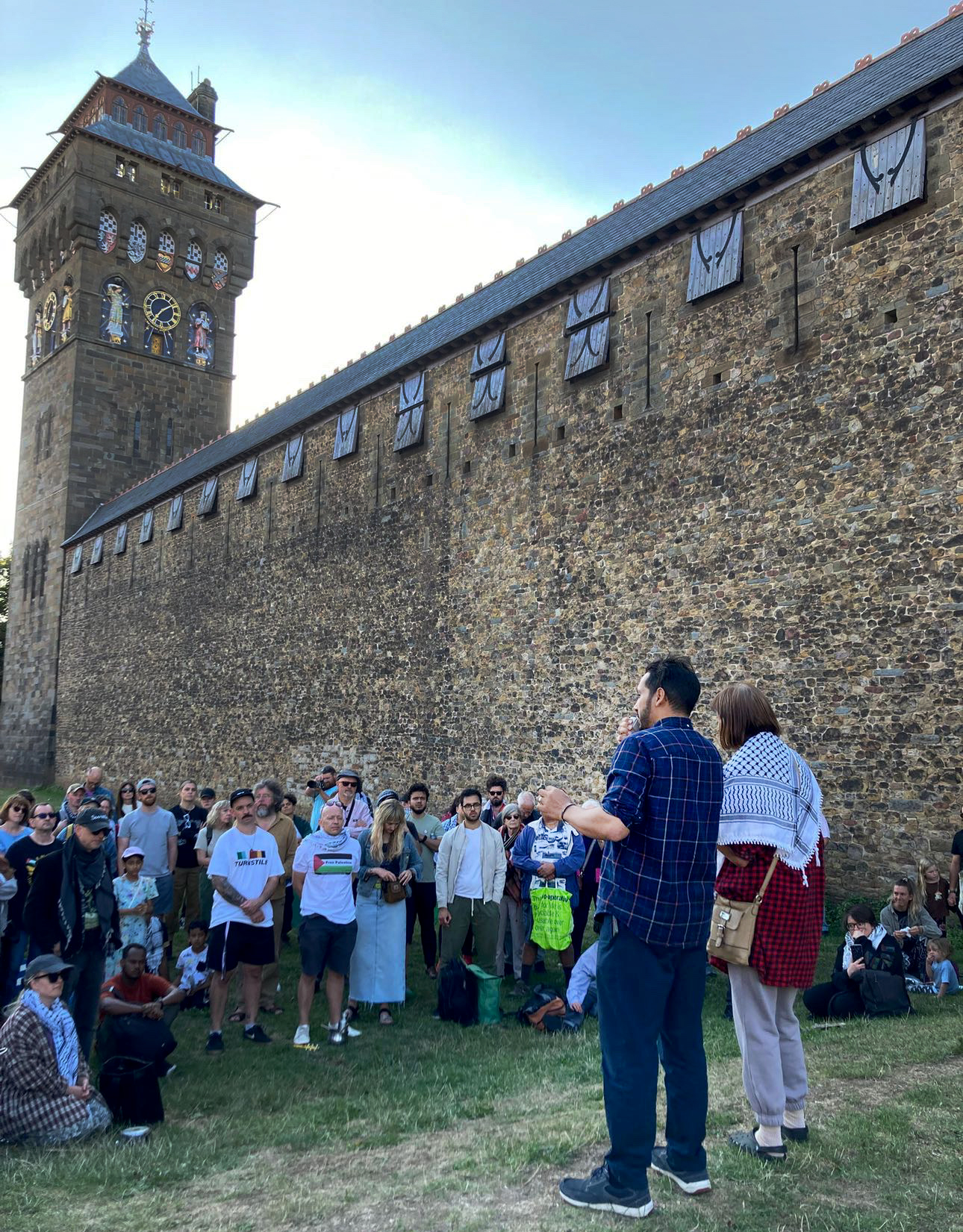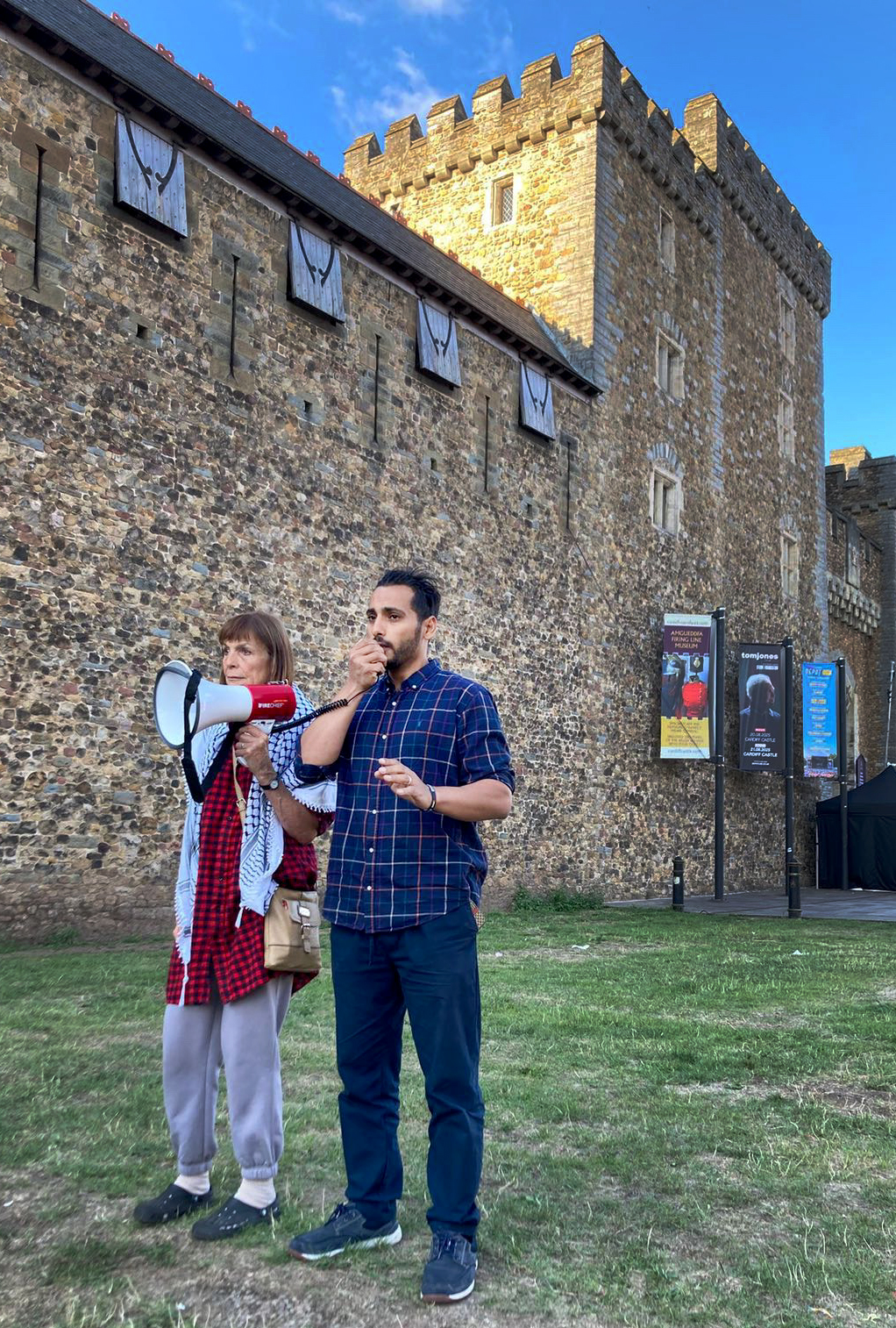 CY
CY
 CY
CY

In an in-depth interview on the Wales, Africa and the World Podcast, Dr Ahmed Alshantti, originally from Gaza and now practicing in Wales, describes the personal toll and real human impacts of the humanitarian catastrophe unfolding in Gaza, and the work being done to save lives and bring hope.
The interview began with Dr Alshantti’s journey from Gaza to Wales. He completed his medical training in Gaza in 2016 in very tough circumstances.
“Life in Gaza at that time was really hard. There was a restriction on movements so patients who needed necessary treatment could not go outside to have treatment. Doctors who would like to get training are unable to travel abroad. So, practically the healthcare system was under siege. But this made me more determined to find a way to go outside and get the necessary knowledge and skills back in my home country.”
However, through the Chevening Scholarship, sponsored by the UK Government, Dr Alshantti was able to travel to Sheffield University to study a Master’s in Public Health. Even this innocent activity achievement faced obstacles. At the time, the Israeli Government did not allow prospective students to leave Gaza to continue their studies abroad, and so the UK Government had to lobby on behalf of Dr Alshantti so he could leave.
“That moment, it changed my life. I joined histopathology, [and] I worked as a histopathology trainee, which is basically working in diagnostics in cancer in the University Hospital of Wales. And every day I see how important training and a functioning healthcare system is, and I always think how much this is deeply missing back in Gaza.”
The conversation moves on to the impact the current catastrophe in Gaza is having on healthcare workers. All aspects of life have become nightmarish for the people living there, and the inability of health workers to provide basic care to patients takes its toll. Maternal mortality has more than doubled since the start of the current conflict. Dr Alshantti shares a heartbreaking personal story about his sister:
“She was 12 weeks pregnant last year. In the middle of the starvation, she was going into the streets for days without a proper meal. And she miscarried because of malnutrition.
“Currently, she is pregnant again, 20 weeks pregnant. And the starvation has hit again. Now the doctors told her that she needs blood thinners to prevent clots in the lungs. Finding one injection is impossible. And if you find one, it will cost more than any family can afford. And imagine without this injection, she might lose her life or her baby.”
This story is happening all over Gaza, and the effect it has on healthcare workers is profound. Dr Alshantti describes a recent phone call from a colleague in Gaza:
“He just felt really desperate; how much he needed to treat and help his patients, but he’s unable to because the resources are absent.”
His friend is struggling to find food even for himself and is resorting to burning plastic to cook food for his children.
Dr Alshantti’s story takes an even darker turn when he recounts the story of losing his sister and her family to an airstrike which destroyed their home. They were survived by their 13 year old daughter who is now alone.
“What is her fault? What is her fault of what has happened on the 7th of October? So she’s left alone along with her burns and injuries to suffer in this world.”
Turning to what action can be taken, and what work Dr Alshantti is doing. He talks about working with Cardiff University School of Medicine who has partnered with the Faculty of Medicine at Al Azhar University in Gaza, to train displaced medical students. He’s working with groups to help keep the only school remaining in northern Gaza, the Al-Tamayuz School in Jabalia, open so that children can continue to receive basic education, albeit disrupted.
The conversation turns towards what practical things people in Wales and elsewhere can do to show solidarity and to take meaningful action to help.
“If you would like to support Gaza, most people donate to the organisations… Speak with Palestinians. It’s not enough just to watch the new passively. Teachers here in Wales can connect with teachers in Gaza. Doctors can connect with doctors. This already has happened. But we need it in all aspects of life.
“Palestinians doesn’t need just only money. They need solidarity.”



You can listen to the full episode of the podcast at https://hubcymruafrica.wales/podcast.
Following the interview, the IPC officially declared a famine in Gaza City and the surrounding neighbourhoods on the 22nd of August 2025.
To hear Dr Alshantti in person, register for the Global Health Partnerships Cymru Conference on the 8th of September here: https://hubcymruafrica.wales/event/ghpc2025